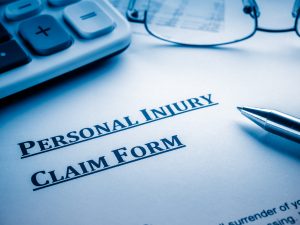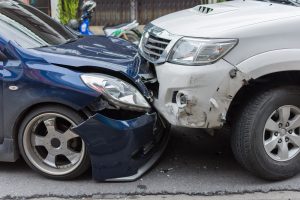Holding Bad Drivers Accountable in Florida Pedestrian Accidents

Walking in Florida can be hazardous for your health. According to Smart Growth America’s 2021 Dangerous by Design report, the Sunshine State is the deadliest in the nation for pedestrians. Of the 15 most dangerous cities for pedestrians in the U.S., 9 are in Florida. The Cape Coral-Fort Myers metro area ranked No. 11.
Between 2010 and 2019, more than 17 pedestrians a day, on average, were struck and killed by U.S. drivers. That is more than 53,000 total lives lost, and it is getting worse, not better. The number of fatal pedestrian accidents spiked 45 percent in that time frame. Understanding why is critical to curbing the incidence rate. So too, is holding negligent drivers accountable.
Our Fort Myers pedestrian accident lawyers are committed to advocating for safer roads and aiding crash victims in collecting damages – whether via insurer negotiations or pursuing claims in court. While many people use the term “sue” in these kinds of cases, the reality is most Florida pedestrian crash claims are settled without litigation. This means we can often secure compensation while also sparing you the time, emotional energy, and financial resources of a trial. Still, it is important to know at the outset that your personal injury attorney is one who can be trusted to successfully prepare your case for civil trial if need be – especially if your injuries are serious.





 Florida Personal Injury Lawyer Blog
Florida Personal Injury Lawyer Blog










 We all know that when an emergency vehicle approaches with its lights flashing and sirens blaring, other motorists should make way – and fast. But what if you cannot move quickly enough? What if you did not see the lights or hear the sirens before it was too late? What if there were no lights or sirens activated at all? Over the years our law firm has received many calls regarding Florida emergency vehicle laws; As our South Florida injury lawyers can explain, state law allows for legal accountability in Florida emergency vehicle accidents in some circumstances. Proving it will likely require an extensive investigation, expert witness testimony, and an experienced legal team.
We all know that when an emergency vehicle approaches with its lights flashing and sirens blaring, other motorists should make way – and fast. But what if you cannot move quickly enough? What if you did not see the lights or hear the sirens before it was too late? What if there were no lights or sirens activated at all? Over the years our law firm has received many calls regarding Florida emergency vehicle laws; As our South Florida injury lawyers can explain, state law allows for legal accountability in Florida emergency vehicle accidents in some circumstances. Proving it will likely require an extensive investigation, expert witness testimony, and an experienced legal team. A Fort Myers injury lawsuit resulted in a jury verdict of more than $5 million in damages, which included $2.25 million for past and future pain and suffering a few years back.
A Fort Myers injury lawsuit resulted in a jury verdict of more than $5 million in damages, which included $2.25 million for past and future pain and suffering a few years back.






